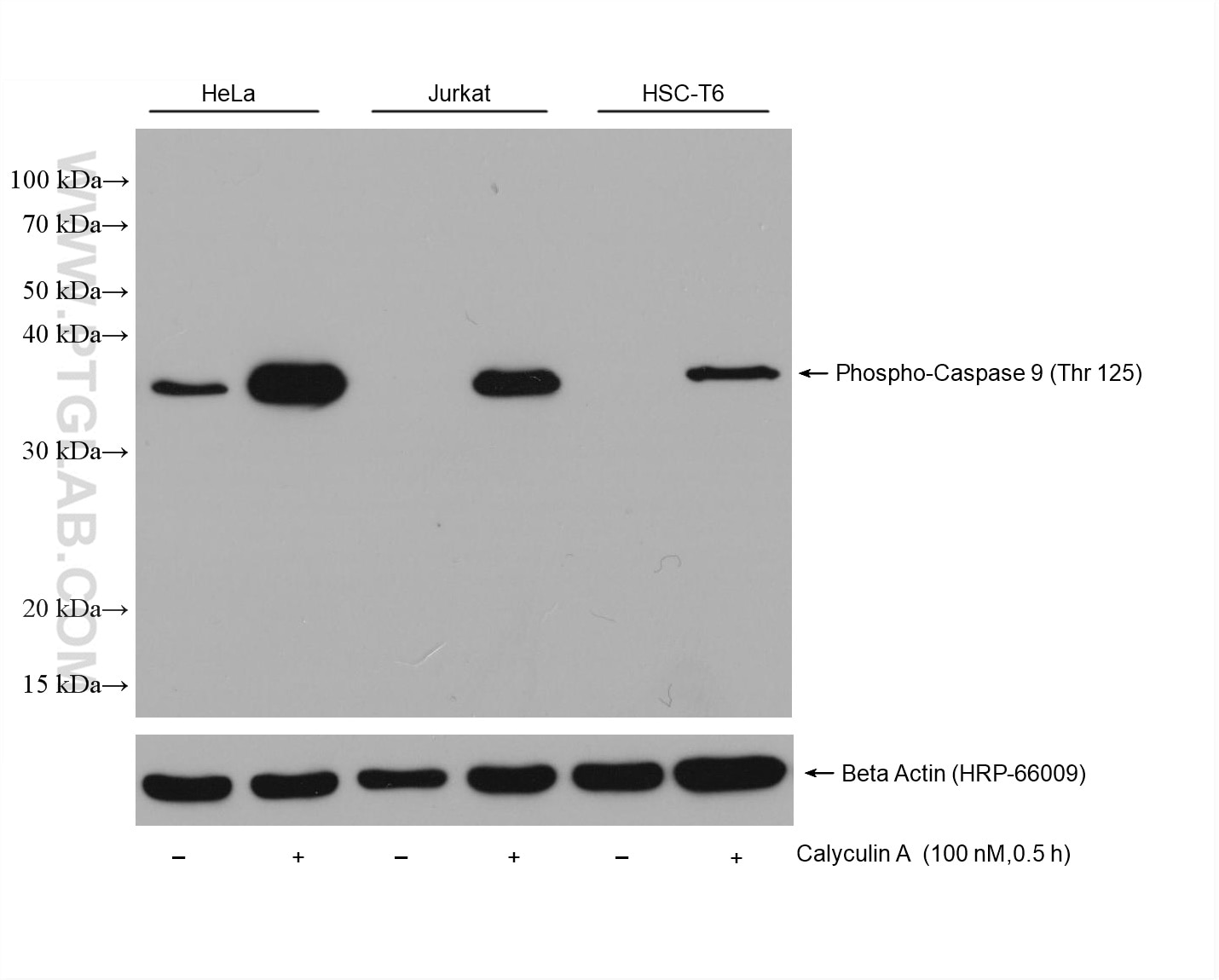Product Information
68136-1-PBS targets Phospho-Caspase 9 (Thr125) in WB, Indirect ELISA applications and shows reactivity with human, rat samples.
| Tested Reactivity | human, rat |
| Host / Isotype | Mouse / IgG1 |
| Class | Monoclonal |
| Type | Antibody |
| Immunogen | Peptide Predict reactive species |
| Full Name | caspase 9, apoptosis-related cysteine peptidase |
| Calculated Molecular Weight | 46 kDa |
| Observed Molecular Weight | 36 kDa |
| GenBank Accession Number | BC002452 |
| Gene Symbol | Caspase 9 |
| Gene ID (NCBI) | 842 |
| Conjugate | Unconjugated |
| Form | Liquid |
| Purification Method | Protein A purification |
| UNIPROT ID | P55211 |
| Storage Buffer | PBS only, pH 7.3. |
| Storage Conditions | Store at -80°C. |
Background Information
Caspase 9 also name as MCH6, APAF3, APAF-3, ICE-LAP6 and CASPASE-9c, is a member of the cysteine-aspartic acid protease (caspase) family. It's synthesized as a 46 kDa precursor protein which can be cleaved into a 35 kDa subunit and a 11 kDa subunit. Control of all caspases is tightly regulated by a series of phosphorylation events enacted by several different kinases. Caspase-9 is the most heavily phosphorylated of all caspases, with phosphorylation of at least 11 distinct residues in all three caspase-9 domains by nine kinases. It plays a central role in the mitochondrial or intrinsic apoptotic pathway that is engaged in response to many apoptotic stimuli. Once activated, caspase-9 cleaves and activates the effector caspases 3 and 7 to bring about apoptosis. It's reported that there is an increase in caspase 9 expression and activity in the hypoxic brain. Inhibition of Caspase 9 activity would render opportunity to treat neurological diseases such as stroke, neurodegenerative diseases or brain injury caused by hypoxia. (PMID: 19788417, PMID: 10529400, PMID: 9812896, PMID: 18840507, PMID: 29066624)



